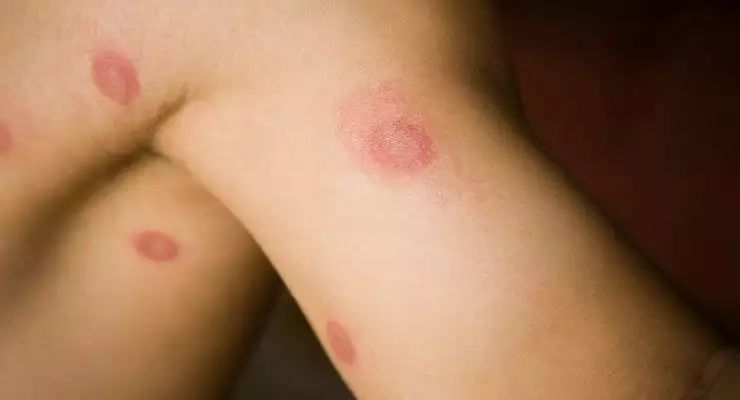Despite its unfortunate name, ringworm has nothing to do with worms. Ringworm is a fungal skin infection in the same family as athlete’s foot and jock itch. The fungus forms a ring pattern on the skin or scalp, and that is where the name comes from. Ringworm is a common fungal infection for kids to get.
Identification
Your child probably has ringworm of the skin if you notice a red, circular, patchy lesion that is clear in the middle. Your child might complain that it itches. Ringworm on the scalp looks like a red pimple that later becomes flaky and scaly. Your child might complain of this area being tender or swollen. Sometimes, hair can break off, which can create bald spots. Ringworm can also show up on the fingernails or toenails, making the nails look thick and yellow.
Function
The ringworm fungus grows in warm, moist areas, such as locker rooms and swimming pools. It is contagious. Ringworm affects skin suffering from minor trauma, such as a scratch, or poor hygiene more easily than healthy skin, according to KidsHealth.
Treatment
If you suspect that your child has ringworm, take her to the doctor who can verify this. Ringworm is generally easy to treat using an antifungal topical medication for the skin and an oral medication for the scalp and nails. It usually takes two to four weeks for the ringworm to go away on the skin and about six to eight weeks to get it to clear up from the scalp. Ringworm on the scalp may clear up sooner if your child uses Nizoral shampoo that contains ketoconazole or Selsun shampoo that contains selenium sulfide.
Prevention
Kids can get ringworm from other kids who have it, or they can get it from infected cats or dogs. Instruct your child never to share brushes, combs, towels, clothes, sporting equipment, pillows or hats with other kids. If your child gets ringworm, you generally do not have to keep him home from school or daycare, according to KeepKidsHealthy and WebMD.
Potential
More kids, especially those kids who live in urban areas, are getting ringworm of the scalp, as of 2010, according to WebMD. This can be serious, because if left untreated, ringworm of the scalp can lead to permanent hair loss. It may also worsen pre-existing asthma or allergies. The group at the highest risk for contracting ringworm of the scalp is African-American children in kindergarten or first grade, according to WebMD.





